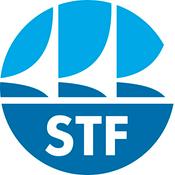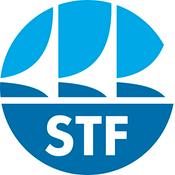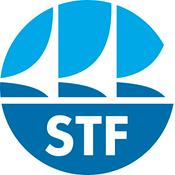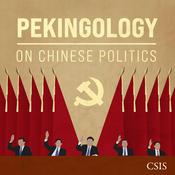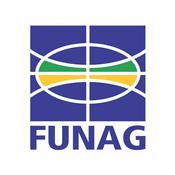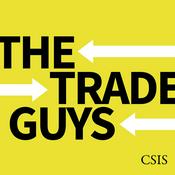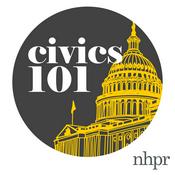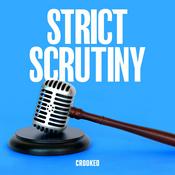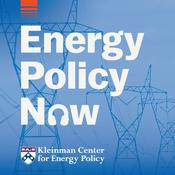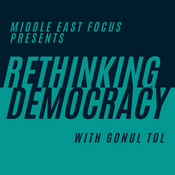Episódios Disponíveis
5 de 113
- Can the past reframe our view of a sustainable future?This week, Bertie Harrison-Broninski speaks with Professor Annette Kehnel, Chair of Medieval History at the University of Mannheim. Kehnel gives us a potted history of sustainability and argues that sustainable practices have existed throughout history, yet our modern collective memory is influenced by ideas of resource exploitation introduced in the 18th and 19th centuries. Annette Kehnel is currently a visiting fellow at the University of St. Gallen in Switzerland. She is the author of The Green Ages: Sustainable Practices, winner of the 2021 NDR Book Prize. Its English translation by Geshe Ipsen has been shortlisted for the 2025 Schlegel-Tieck Prize. Further reading: The Green Ages: Medieval Innovations in Sustainability, Annette Kehnel, Profile Books Die sieben Todsünden: Menschheitswissen für das Zeitalter der Krise (The Seven Deadly Sins: Human Knowledge for the Age of Crisis), Annette Kehnel, Rowohlt Governing the commons : the evolution of institutions for collective action, Elinor Ostrom, Cambridge University Press Merchants of Doubt: How a Handful of Scientists Obscured the Truth on Issues from Tobacco Smoke to Global Warming, Naomi Oreskes, Bloomsbury Managing the Lake Constance Fisheries, ca. 1350-1800, Michael Zeheter, Berghahn Send us a textClick here for our website to read all our most recent Land and Climate Review features and pieces.--------29:12
- Fusion: is it finally coming together?US Energy Secretary Chris Wright has claimed that nuclear fusion can be harnessed within the next five years, and that its application to the electricity grid is expected within eight to fifteen years. Fusion research has been ongoing for over a century, with experiments beginning in the 1950s, but there has recently been a surge in private investment. Nearly $10 billion has been raised in the last five years, primarily from private funders in the USA.Fusion expert Matthew Hole tells Bertie Harrison-Broninski that many of these new companies are likely to go bankrupt, and that fusion power is unlikely to be operational in time to contribute to net zero targets. They discuss the different forms of fuel for fusion power, the world’s largest fusion project in France, and the high-risk, high-reward nature of fusion investment.Matthew Hole is a professor at the Mathematical Sciences Institute at the Australian National University and a leading authority on plasma fusion physics. In 2005, he founded the Australian ITER Forum and currently serves as co-chair of the International Fusion Research Council of the International Atomic Energy Agency.Further reading: Billions in private cash is blooding into fusion power. Will it pay off? Professor Matthew Hole, 2025, The Conversation US energy chief tells BBC nuclear fusion will soon power the world, Justin Rowlatt, 2025, BBCHelion Energy starts construction on nuclear fusion plant to power Microsoft data centers, Stephen Nellis, 2025 ReutersWhat’s fueling the commercial fusion hype? Victor Gilinsky, 2024, Bulletin of the Atomic ScientistsIter, the nuclear-fusion project proving that multilateral collaboration still works, Simon Bouvier, 2025, MonocleWhat’s the difference between fusion and fission? A nuclear physicist explains, Professor Matthew Hole, 2024, The ConversationSend us a textClick here for our website to read all our most recent Land and Climate Review features and pieces.--------24:24
- Is Earth's climate written in the stars?Controversial efforts at space tourism, such as by Jeff Bezos’ Blue Origin, have reignited old debates about the purpose of space exploration. What relevance does the world beyond our planet have to anyone apart from billionaires and their super-rich clients? Without defending the growing commercialisation of the space sector, environmental historian Professor Dagomar Degroot offers some answers. In conversation with Alasdair, he examines the solar system's influence on humanity - and humanity's influence on the solar system. They explore how humans have survived past climate shifts, and how human understanding of climate and space have always been connected. Dagomar Degroot is Associate Professor of Environmental History at Georgetown University and a leading scholar on the Little Ice Age. His first book, “The Frigid Golden Age,” was published in 2018. His new work, “Ripples on the Cosmic Ocean,” is published by Penguin and available to pre-order here. He also has a podcast telling the story of climate's influence on humanity, The Climate Chronicles.Further reading: Little Ice Age Lessons, Dagomar Degroot, Aeon, 2025 The Frigid Golden Age, Dagomar Degroot, Cambridge University Press, 2018 The History of Climate and Society, Dagomar Degroot, IOPScience, 2022 Climate Change in Human History: Prehistory to the Present, Benjamin Lieberman and Elizabeth Gordon, 2022, Bloomsbury The Story of CO₂ Is the Story of Everything: How Carbon Dioxide Made our World, Peter Brannen, 2025, Harper Collins Colonial Cataclysms: Climate, Landscape, and Memory in Mexico’s Little Ice Age, Bradley Skipyk, 2020, University of Arizona Press Send us a textClick here for our website to read all our most recent Land and Climate Review features and pieces.--------42:28
- Can Gulf petrostates really build green cities?In 2006, the Masdar City project was launched in the United Arab Emirates. Supported by $22 billion in state-funding, it aimed to be the world’s most sustainable city. Situated 6km away from Zayed International Airport, neighbouring a Formula 1 racetrack and golf course, Abu Dhabi’s eco-utopia is full of contradictions.Bertie discusses why oil-rich Gulf states like UAE and Saudi Arabia are investing in sustainability with Gökçe Günel, Associate Professor in Anthropology at Rice University. Gökçe is the author of Spaceship in the Desert: Energy, Climate Change, and Urban Design in Abu Dhabi, published in 2019 by Duke University Press. Further reading: Inside COP28: A Participant’s Take on Climate Diplomacy Efforts in Dubai, Gökçe Günel, Baker Institute, 2024 Horizons, Gökçe Günel, e-flux Architecture, 2022Spaceship in the Desert: Energy, Climate Change, and Urban Design in Abu Dhabi, Gökçe Günel, Duke University Press, 2019 Send us a textClick here for our website to read all our most recent Land and Climate Review features and pieces.--------31:01
- Can tech really save us from climate disaster?Global heating in 2024 exceeded 1.5C above pre-industrial levels, but most governments continue to extend fossil fuel use. Are we now in a political situation where decarbonisation and mitigation efforts are failing? Is climate disaster irreversible?Alasdair MacEwen discusses these questions with Wim Carton, who returns to the podcast following publication of his new book, The Long Heat: Climate Politics When It’s Too Late, co-authored with Andreas Malm. Wim also explains the desperate technological solutions being considered for carbon dioxide removal and geoengineering, which he argues could do more harm than good.Wim Carton is a senior lecturer at the Lund University Centre for Sustainable Studies. His research centres on carbon capture and negative emissions. The Long Heat is the second book he has co-authored with Andreas Malm for Verso Books, after 2024's Overshoot: How the World Surrendered to Climate Breakdown.Further reading:Click here to buyThe Long Heat from Verso Books.Overshoot: has the world surrendered to climate breakdown?, Land and Climate Review, 2024 Is climate modelling undermined by economics and ideology?, Land and Climate Review, 2022 Overshoot: Navigating a world beyond 1.5°C, Planet B Productions and the Strategic Climate Risks Initiative., Laurie Laybourn, 2025 Scientists Clash over whether Polar Geoengineering Is a Dangerous Gamble, Scientific American, Alec Luhn and Andrea Thompson, 2025 A ‘doom loop’ of climate change and geopolitical instability is beginning, The Conversation, Laurie Laybourn and James Dyke, 2024 The Sunlight Managers, The Break-Down, Sofia Menemenlis, 2025 Send us a textClick here for our website to read all our most recent Land and Climate Review features and pieces.--------30:08
Mais podcasts de Ciência política
Podcasts em tendência em Ciência política
Sobre The Land & Climate Podcast
The editorial team from The Land and Climate Review interview thinkers and policymakers in the world of economics, land-use and climate policy. Find more on our site at www.landclimate.org
Site de podcastOuça The Land & Climate Podcast, A Voz do Brasil e muitos outros podcasts de todo o mundo com o aplicativo o radio.net
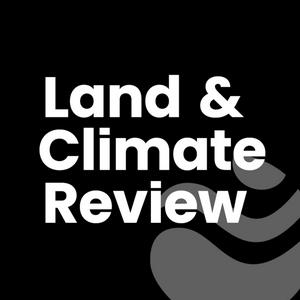
Obtenha o aplicativo gratuito radio.net
- Guardar rádios e podcasts favoritos
- Transmissão via Wi-Fi ou Bluetooth
- Carplay & Android Audo compatìvel
- E ainda mais funções
Obtenha o aplicativo gratuito radio.net
- Guardar rádios e podcasts favoritos
- Transmissão via Wi-Fi ou Bluetooth
- Carplay & Android Audo compatìvel
- E ainda mais funções


The Land & Climate Podcast
Leia o código,
baixe o aplicativo,
ouça.
baixe o aplicativo,
ouça.



